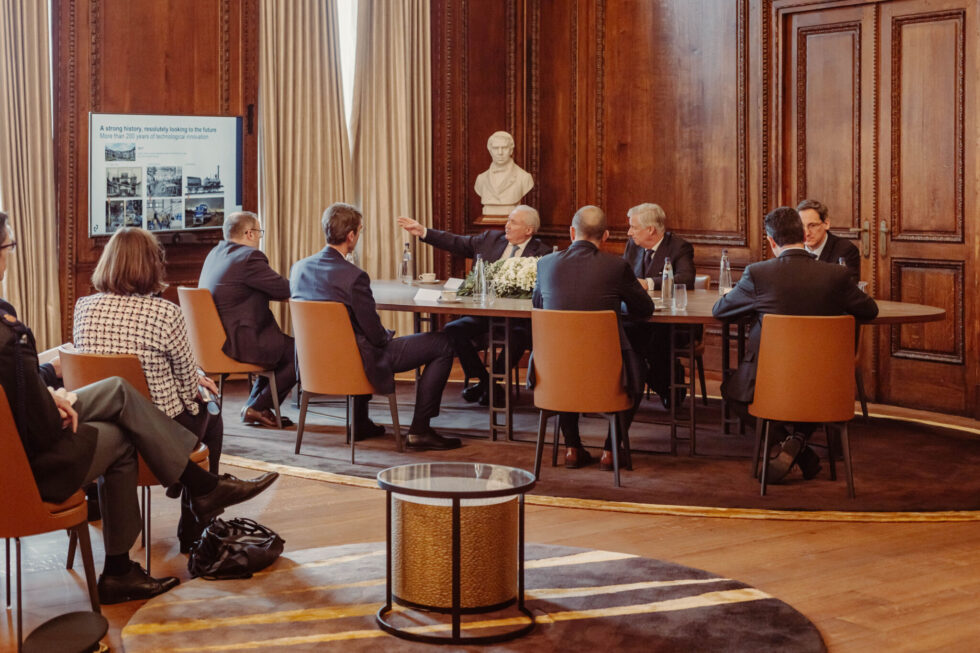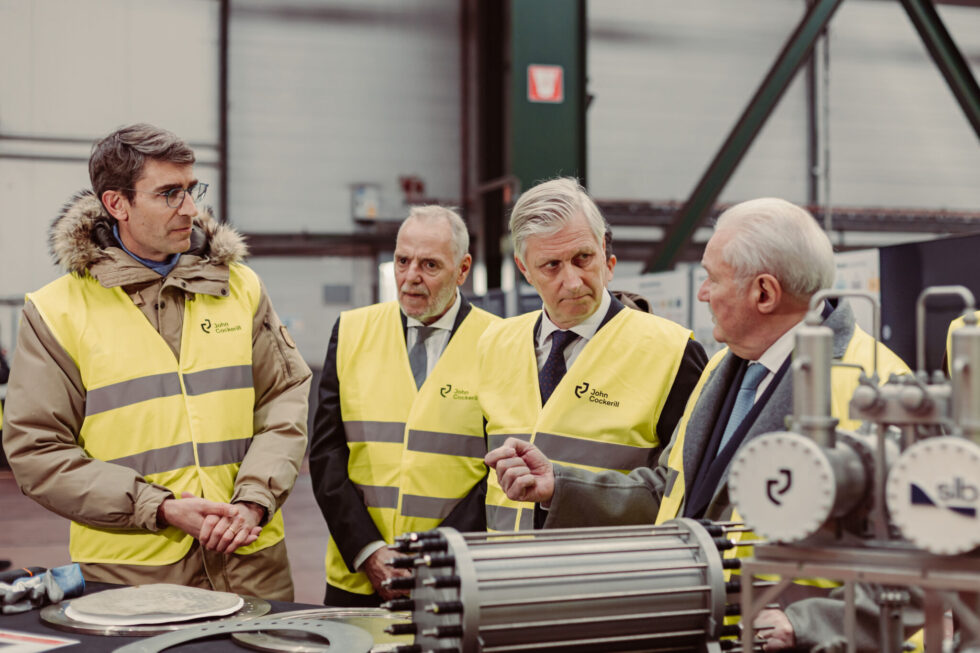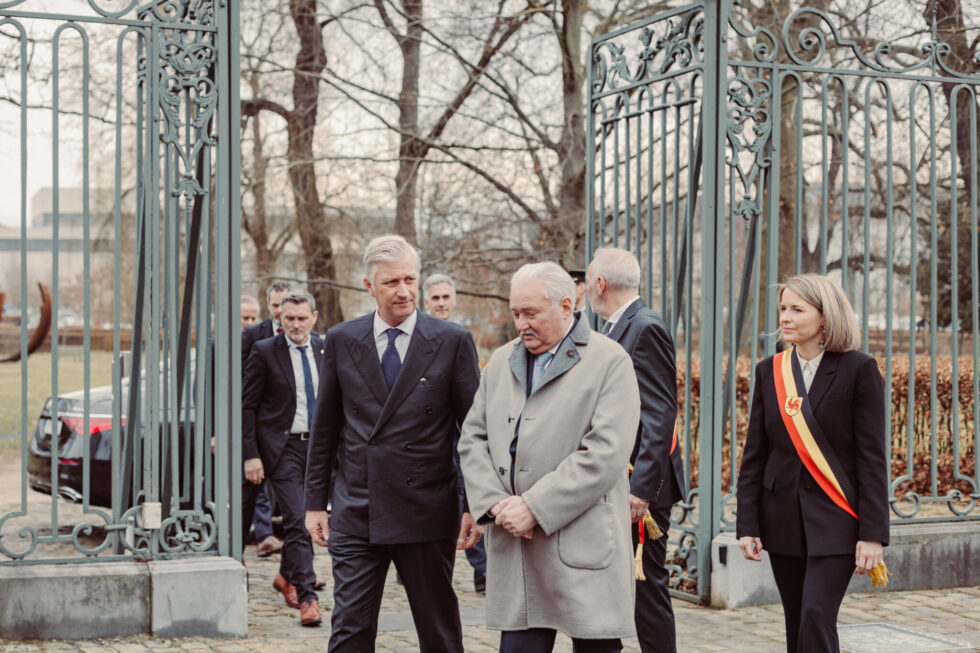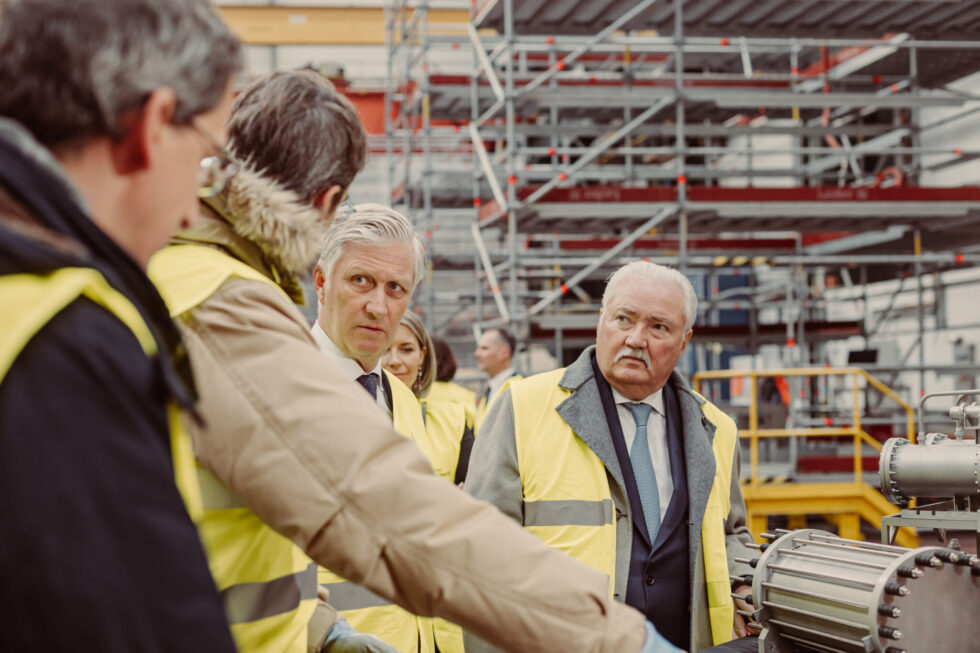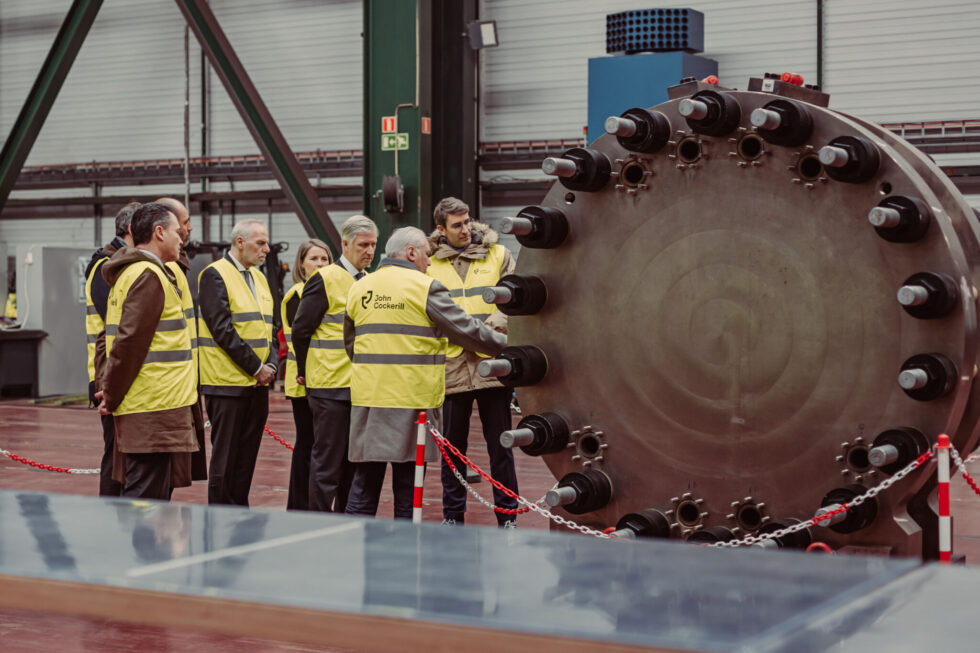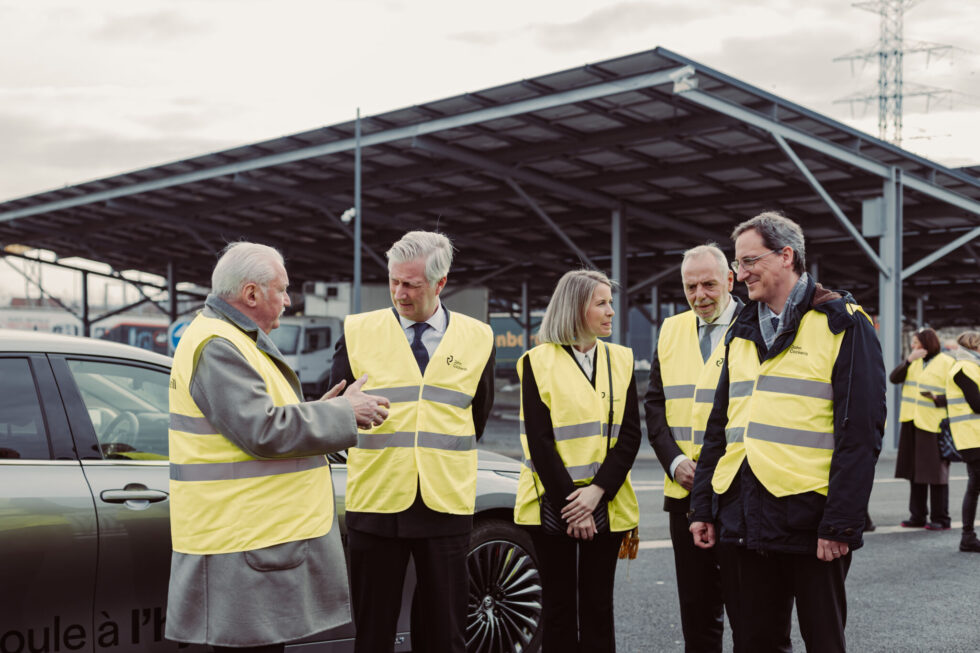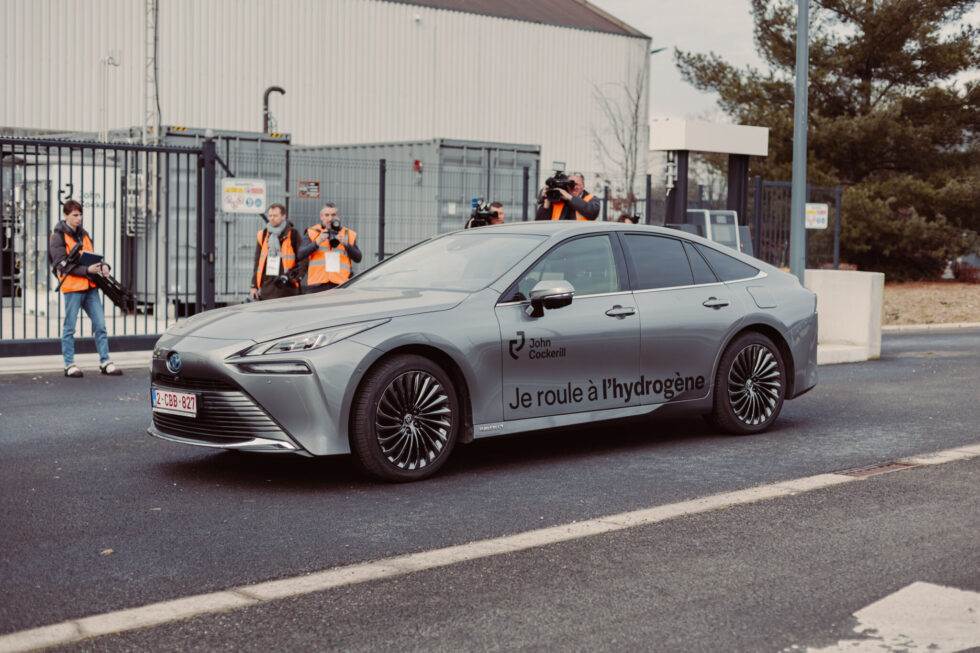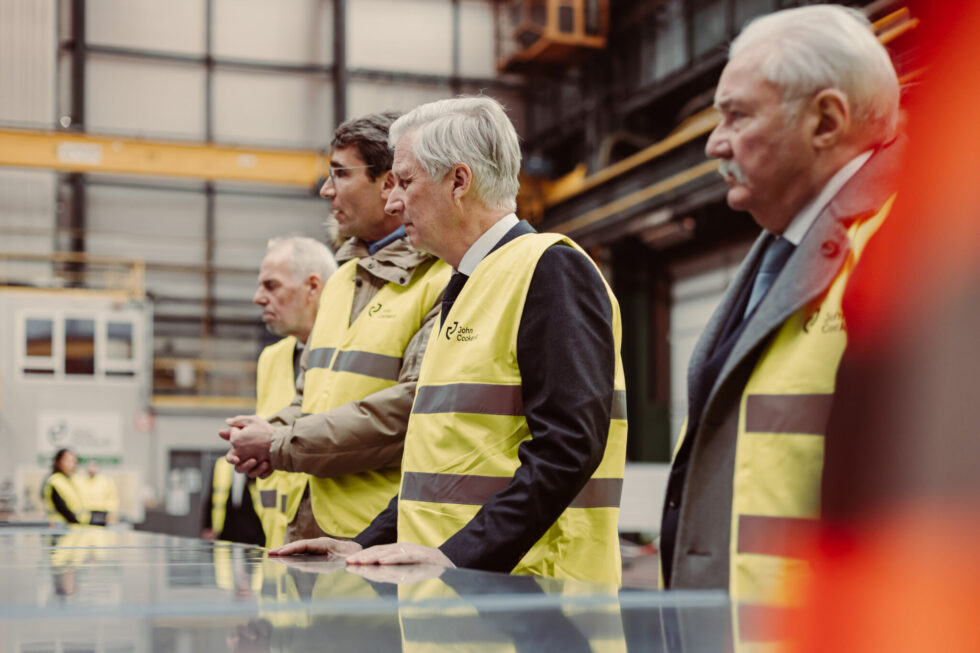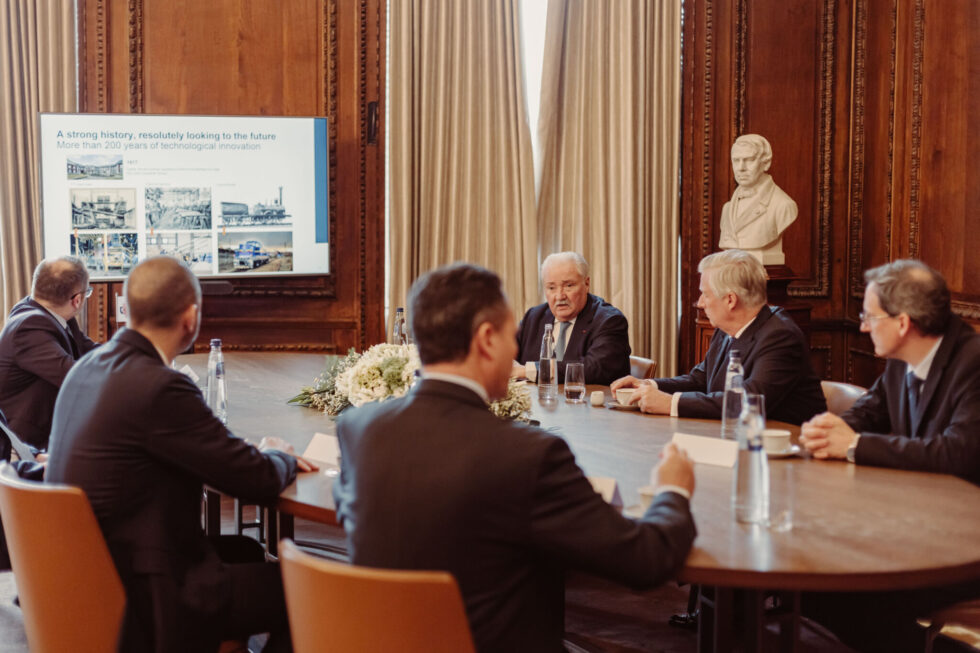John Cockerill welcomed His Majesty King Philippe of Belgium to discover its activities in hydrogen
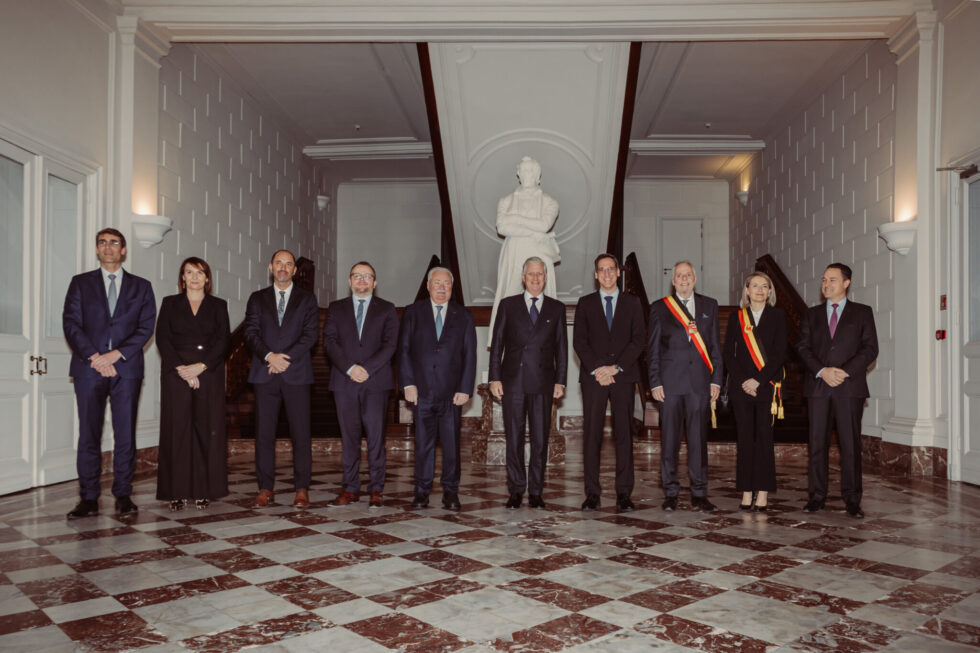
February 21st 2025
On 20 February 2025, John Cockerill received His Majesty King Philippe of Belgium. This discovery of John Cockerill’s activities in hydrogen came about following an official visit by King Philippe to Namibia, which took place from 29 April to 3 May 2024, aimed at stimulating international cooperation around green hydrogen. His Majesty first met Bernard and Nicolas Serin, Chairman and Vice-Chairman of the Group, and François Michel, CEO, in the presence of the Belgian Federal Minister for Energy, Mathieu Bihet. The King then visited the John Cockerill industrial site in Seraing, where alkaline electrolyzers are assembled and the hydrogen technologies of tomorrow are developed. John Cockerill had the honour of presenting to King Philippe of Belgium its two-hundred-year-old know-how, its innovation and production capacities, as well as its leadership and ambitions.
Replacing traditional grey hydrogen based on fossil fuels with green hydrogen, a low-carbon energy carrier, makes it possible to decarbonize various industrial sectors, such as chemicals, heavy transport and industries that are difficult to decarbonize, such as steel.
John Cockerill’s activities have always evolved to keep pace with the needs of industry. In recent years, the Group has developed particularly strongly in the field of low-carbon energy, in order to meet the needs of our times and the growing demand of its customers, becoming a pioneer in green hydrogen from 2017 onwards.
Pressurised alkaline electrolyzers are a proven technology that enable the low-cost, large-scale production of green hydrogen. John Cockerill is one of the world leaders in this field, having delivered 1300 electrolysers worldwide and offering a range of products including 5 MW stacks and a complete 30 MW pressurised alkaline electrolyser system.
Hydrogen development targets have been set at European level and support mechanisms for the sector have been put in place by the EU Member States. There are numerous projects worldwide for the production of hydrogen from carbon-free electricity. This is why John Cockerill has developed a global strategy for the creation of regional ecosystems to be as close as possible to customers and markets.
In Europe, the Group has set up an electrolyzer production plant: the cells are produced in Aspach (Alsace) and then assembled in Seraing. This Gigafactory will supply electrolyzer equipment for European projects, such as Hyoffwind, the first Belgian green hydrogen production plant, on which construction recently began in Zeebrugge.
To accelerate its development, John Cockerill has formed major partnerships in strategic sectors, particularly in Belgium and France and John Cockerill Hydrogen has welcomed several minority shareholders.
200 years of history
It all began in 1817, when John Cockerill bought the Château de Seraing from William of Orange. Even at that time, the company, which would later become the economic flagship of the region, designed and manufactured technical equipment such as steam engines, iron and steel equipment, cannons and locomotives. Then, gradually, steel production became the main activity of the Cockerill establishments, which contributed significantly to the industrial revolution.
In 2002, when Bernard Serin bought CMI (Cockerill Mechanical Industries, then Cockerill Maintenance & Ingénierie in 2004), the company left the steel industry for good. Under his leadership, the original activity of industrial equipment supplier once again became the core business. The Group expanded its technology portfolio, developed its service activities and expanded across the world, mainly through acquisitions.
On 16 May 2019, two years after the company’s bicentenary, CMI changed its name back to John Cockerill, in honour of the visionary and daring entrepreneur. The Group then undertook a strategic shift and focused in particular on renewable energies.
A private family group
John Cockerill is a private group whose majority shareholder is still the Serin family, through its company Ebenis. Bernard Serin chairs the Group’s Board of Directors, and his son, Nicolas Serin, is its Vice-President. François Michel has been Chief Executive Director since June 2022. Since its takeover in 2002 by Bernard Serin, the Group has enjoyed sustainable and profitable growth. John Cockerill is expanding and investing in the diversification and internationalisation of its inherently cyclical activities.
By drawing on the past to build the future, the Group is continuing to work towards the same mission as our founder John Cockerill: to meet the needs of our time. We are the heirs of two centuries of technological innovation. Just as John Cockerill met the needs of the 19th century with innovative industrial equipment, we are meeting the needs of the 21st century with technologies to:
- facilitating access to low-carbon energy (electrolyzers for hydrogen production, receivers for solar thermal power plants, microgrids for energy production and storage, nuclear maintenance, wind turbine maintenance, industrial boilers and heat recovery steam generators).
- enabling responsible industrial production (steel processing lines, multiple hearth furnaces, surface treatment lines, cooling towers and air-cooled condensers)
- preserving natural resources (liquid and gaseous effluent treatment systems: industrial water, air pollution control)
- contributing to greener mobility (Transurb railway simulators, charging stations for electric or hydrogen vehicles, railway maintenance, river infrastructure maintenance)
- enhancing security (defence systems, military vehicles, simulators)
- developing essential infrastructure (drinking water supply, construction of bridges and road interchanges, maintenance of river and port infrastructure, development of electrical micro-networks)
More than 1500 employees and 9 sites in Belgium
The Group has been based in Seraing since 1817. John Cockerill has 8 other sites in Belgium (Loncin, Namur, Manage, Namur, Willebroek, Brussels, Antwerp, Ostend) with more than 1500 employees.
Innovation is at the heart of the company’s DNA. That is why, in 2021, John Cockerill also created Industrya, with SFPI, Wallonie Entreprendre, Noshaq and LRM, an investment fund supporting start-ups active in the energy transition and new materials.
A group committed to improving the living conditions of communities in the regions where it operates, John Cockerill created the John Cockerill Foundation in 2017. Since then, the John Cockerill Foundation has supported 80 projects in 13 countries, benefiting 125,000 people and with the direct involvement of 2,500 employees.
The evolution of John Cockerill in figures, from 2002 to 2023:
- From 208 million to 1.201 billion euros in turnover
- From 358 million to 1.096 billion euros in order intake
- From 5 subsidiaries to 92
- From 4 to 29 countries in which John Cockerill is present
- From 1516 employees to 5693 (7247 in 2024 following the acquisition of Arquus)
- From 21.4 to 1.12 accident frequency rate

